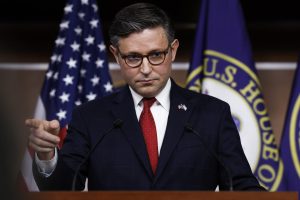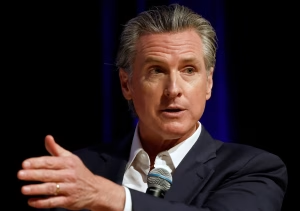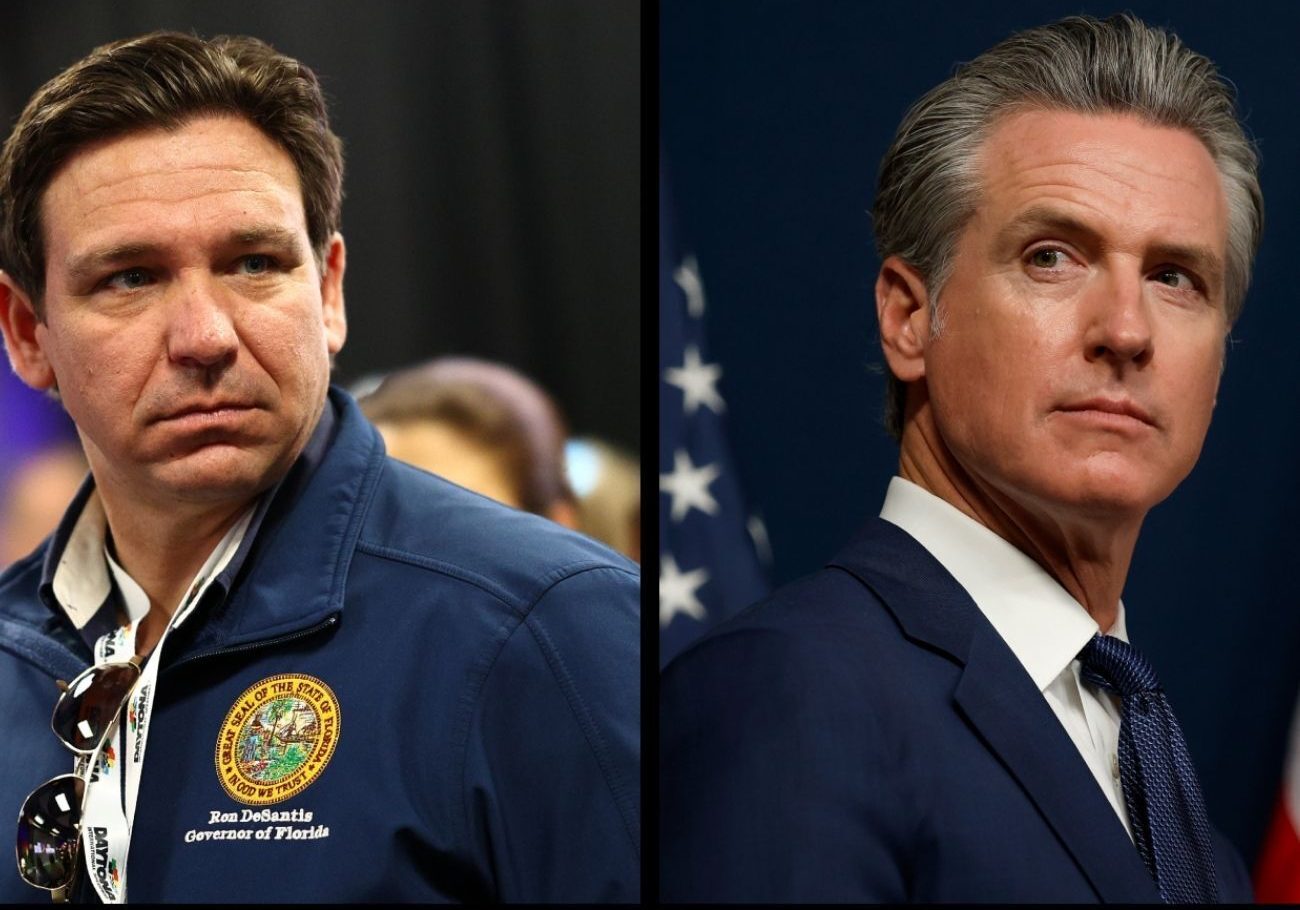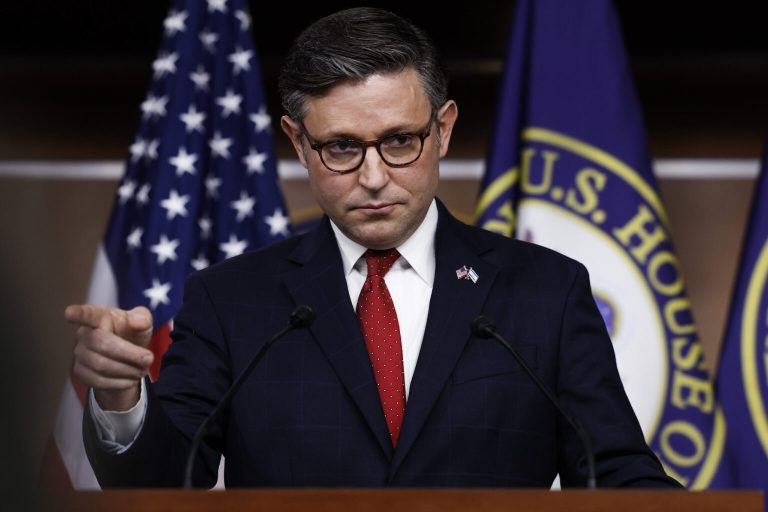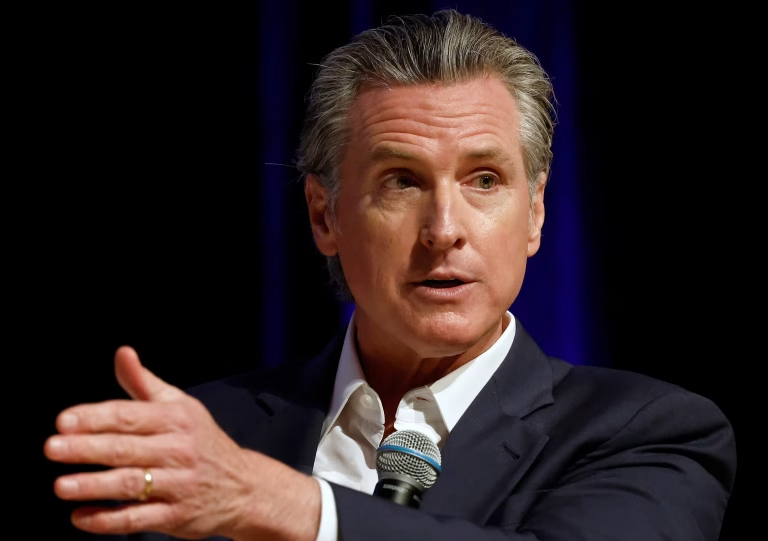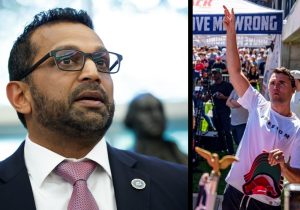TALLAHASSEE, Fla. — Florida has filed a high-profile lawsuit directly with the U.S. Supreme Court, alleging that California’s decision to issue commercial driver’s licenses (CDLs) to individuals residing in the United States illegally has created unsafe conditions on America’s highways.
The lawsuit, announced Wednesday by Florida Attorney General James Uthmeier, marks one of the most aggressive state-on-state legal challenges in recent years over immigration enforcement and transportation safety.
“We can do everything right, but we still suffer when Gavin Newsom and liberals on the West Coast allow these illegals in,” Uthmeier said in an appearance on Fox News with Sean Hannity. “They encourage them, enable them to get these driver’s licenses, and then they cross the country and ultimately take lives.”
The Core of the Lawsuit
In the petition submitted to the Supreme Court, Florida accuses California of violating federal safety regulations that require commercial truck drivers to demonstrate English proficiency and basic comprehension of road safety rules.
Under federal law, the Federal Motor Carrier Safety Administration (FMCSA) mandates that all CDL holders must be able to read and understand English sufficiently to respond to official road signs, communicate with authorities, and complete necessary documentation.
Florida argues that California’s sanctuary-style policies — which prohibit verification of an applicant’s immigration status — make it impossible to ensure that drivers meet those federal standards.
The filing contends that these policies not only undermine highway safety but also burden other states by allowing unqualified drivers to cross state lines.
“California routinely frustrates and hinders federal law enforcement from addressing the immigration crisis and the destruction that accompanies it,” the petition reads. “Its CDL policy represents an actionable public nuisance and a direct threat to the safety of interstate travelers.”
https://twitter.com/AGJamesUthmeier/status/1978641628157055306
Fatal Turnpike Crash Sparks Legal Action
The immediate catalyst for Florida’s lawsuit was a fatal August 2025 crash on Florida’s Turnpike involving Harjinder Singh, a 28-year-old undocumented immigrant from India who possessed a commercial driver’s license issued by the state of California.
Investigators said Singh attempted an illegal U-turn in his 18-wheeler, causing a multi-vehicle collision that killed three people.
Subsequent reports revealed that Singh had limited English proficiency and was unable to interpret key road signs or communicate effectively with police officers at the scene — shortcomings that, under federal rules, should have disqualified him from obtaining a CDL.
The tragedy intensified scrutiny of California’s licensing practices and prompted Florida’s leaders to demand accountability from both state and federal officials.
“They know that by giving people these trucker licenses who don’t speak English, they’re putting families on the road in jeopardy,” Uthmeier said. “Lives are lost. They know about it. They need to be held responsible.”
Federal Involvement and Funding Sanctions
The controversy has also drawn attention in Washington. U.S. Secretary of Transportation Sean Duffy has already withheld $40 million in federal highway funding from California, citing its failure to comply with English-language testing requirements for commercial drivers.
Duffy warned that an additional $160 million in funds could be frozen if California does not demonstrate compliance within 30 days.
“Federal law is clear on this issue,” Duffy said. “Commercial truck operators must be able to read, write, and understand English. States that fail to enforce that standard risk not only the safety of their roads but their eligibility for federal funding.”
California has not yet filed its formal response to the Supreme Court but is expected to argue that its licensing policies fall within its state sovereignty and are aimed at ensuring road safety through training rather than immigration enforcement.
Florida’s Enforcement Crackdown
In addition to the legal challenge, Florida has expanded its own enforcement operations on major highways.
Inspection stations along Interstate 10 and agricultural checkpoints now include enhanced verification systems to cross-check the credentials of out-of-state CDL holders.
Since the policy took effect in late September, authorities have intercepted nearly 150 drivers who were found to be living in the country illegally and referred them to federal immigration officials.
Officials said some truckers have begun diverting onto back roads to evade the new checkpoints. In response, Florida has installed camera systems and license plate scanners along alternate routes to monitor suspicious detours.
“We’re not going to let unsafe or illegal drivers jeopardize lives on our highways,” said Uthmeier. “This isn’t about politics — it’s about public safety.”
California’s Broader Licensing Policy
California began issuing commercial driver’s licenses to undocumented residents in 2015, following the passage of Assembly Bill 60 (AB 60).
The law was originally intended to allow immigrants, regardless of status, to obtain standard non-commercial licenses to legally drive to work, school, and medical appointments. Over time, however, the state expanded the program to include CDLs, enabling individuals to operate heavy trucks and commercial vehicles.
Supporters argue that the policy improves safety by ensuring that all drivers — regardless of immigration status — undergo testing, training, and insurance verification.
Critics, including Florida officials, contend that it compromises federal standards and encourages illegal immigration.
“This is not just a California issue,” said transportation policy analyst Erin Lott. “When those trucks cross state lines, the risk becomes national.”
A Rare State-vs-State Supreme Court Battle
Florida’s petition went directly to the Supreme Court, bypassing lower federal courts because disputes between states fall under the Court’s original jurisdiction.
Such cases are rare and typically reserved for boundary disputes, water rights, and state economic conflicts. The Court will first decide whether to accept the case before any arguments are heard.
If accepted, the case would likely test the balance between state authority and federal regulation in matters of transportation safety and immigration policy.
“This lawsuit is significant because it goes beyond politics — it’s about how states interact under a federal system,” said constitutional attorney Chris Stovall. “Florida is arguing that California’s decisions are actively harming citizens of another state, which is a bold and unusual claim.”
National Implications
Florida’s filing also names Washington State as a “secondary concern,” citing similar licensing policies that allow non-citizens to obtain CDLs.
Should the Supreme Court side with Florida, the ruling could have sweeping national implications, potentially forcing states to restructure their licensing systems or risk losing billions in federal transportation grants.
Meanwhile, Singh — the driver involved in the fatal August crash — remains in custody in Florida, facing vehicular homicide and immigration-related charges. His case has become emblematic of what state officials call a “systemic failure” in immigration enforcement.
Uthmeier’s Closing Message
In his statement, Uthmeier said Florida would continue pushing for accountability and stronger federal oversight.
“We’re fighting to protect families on the road and uphold the rule of law,” he said. “California’s recklessness has consequences, and the Supreme Court needs to step in before more lives are lost.”
The case could be heard as early as spring 2026 if the justices agree to take it up.

Sarah Mitchell is a bestselling novelist recognized for her insightful and emotionally resonant stories that explore the complexities of human relationships. Originally from Denver, Colorado, Sarah grew up in a family of teachers who nurtured her curiosity and love for storytelling. She studied psychology at Stanford University, where she became fascinated by the intricacies of human behavior—an interest that would later shape her writing career. Sarah’s novels are praised for their nuanced characters, intricate plots, and ability to capture the subtle tensions that define love, friendship, and family ties. Her breakthrough novel, The Spaces Between Us, became an instant bestseller, lauded for its honest portrayal of strained family relationships and the fragile bonds that hold people together. Since then, she has published several works that continue to captivate audiences around the world. Outside of her writing career, Sarah is passionate about mental health advocacy and often partners with organizations to promote awareness and support for those struggling with emotional well-being. Her personal life is quieter—she enjoys hiking in the Colorado mountains, practicing yoga, and spending time with close friends. With each new book, Sarah Mitchell cements her reputation as a writer who illuminates the beauty and struggles of human connection.
